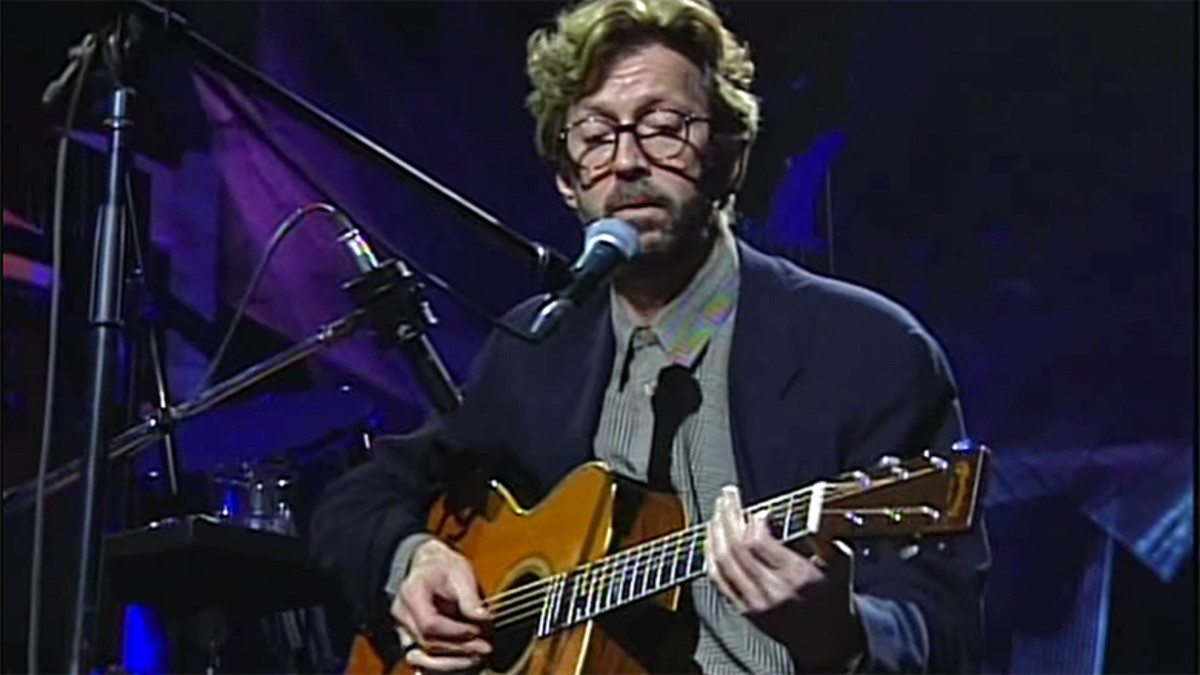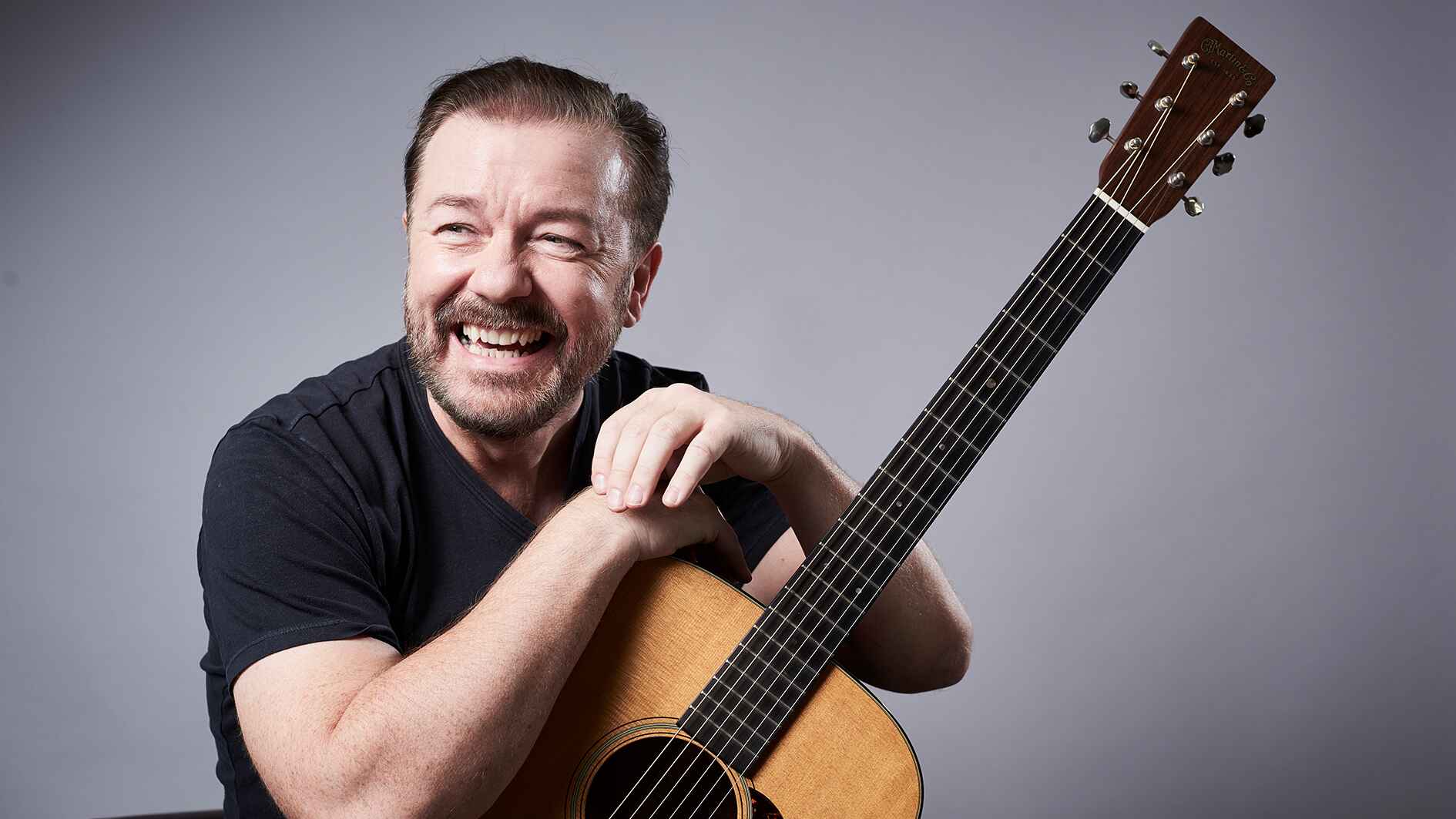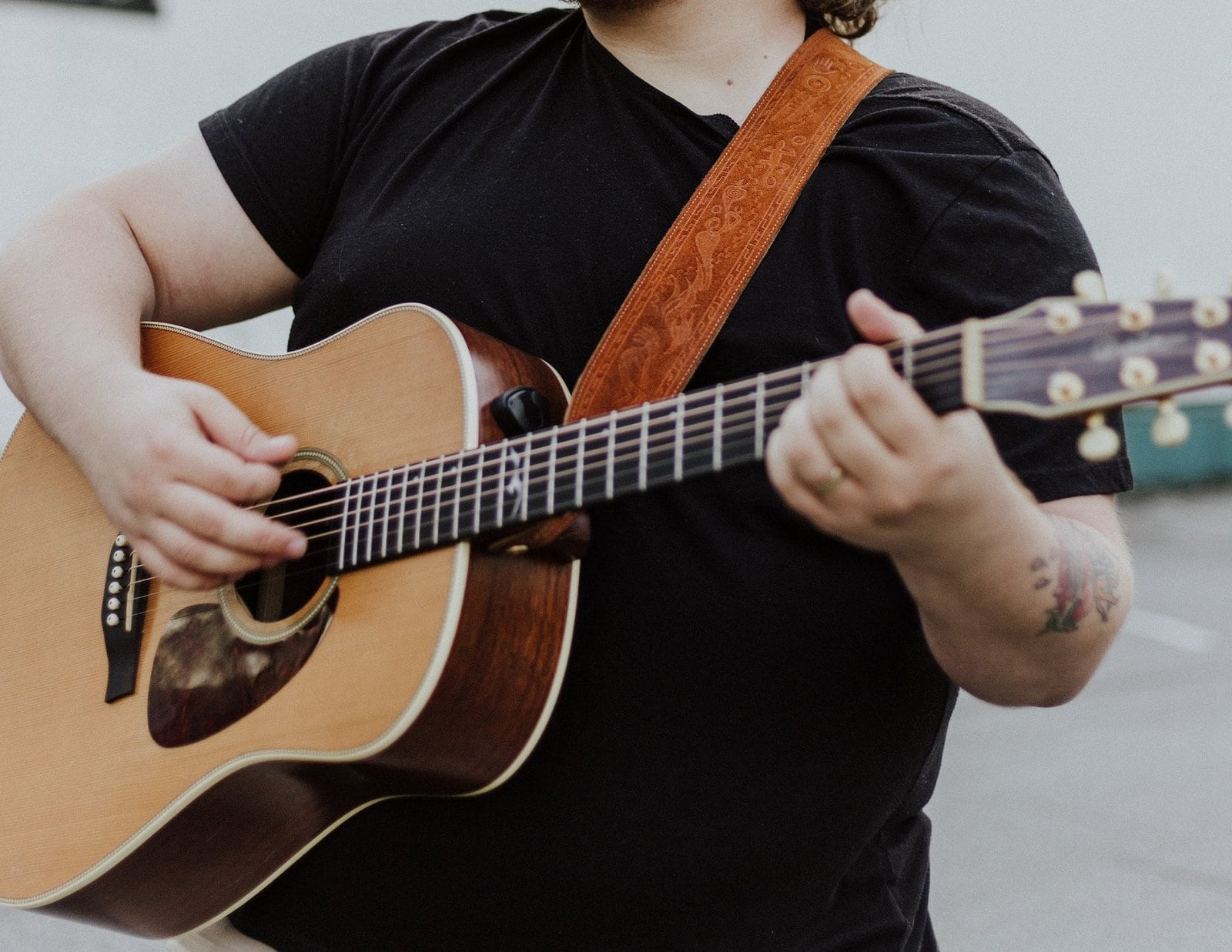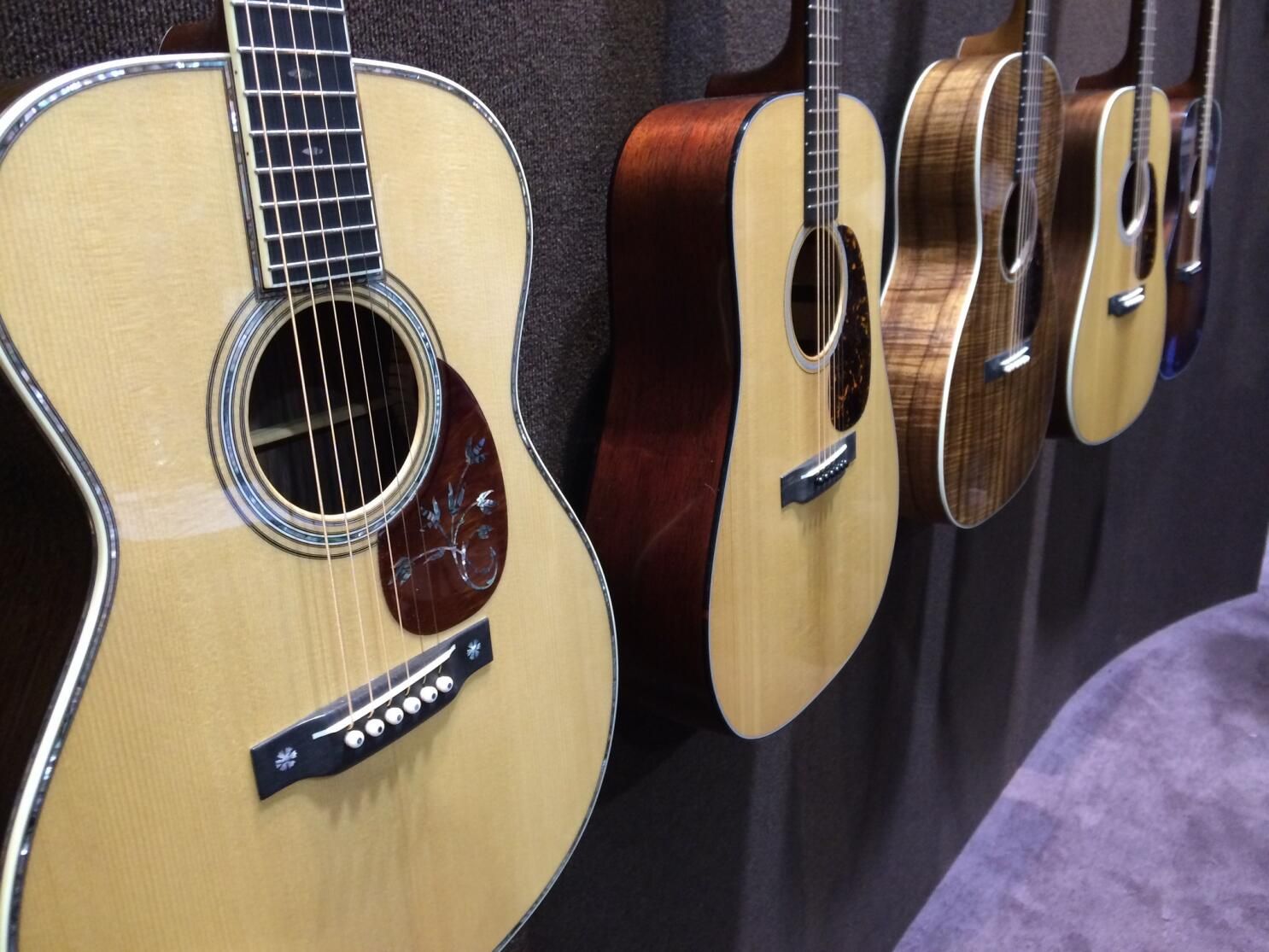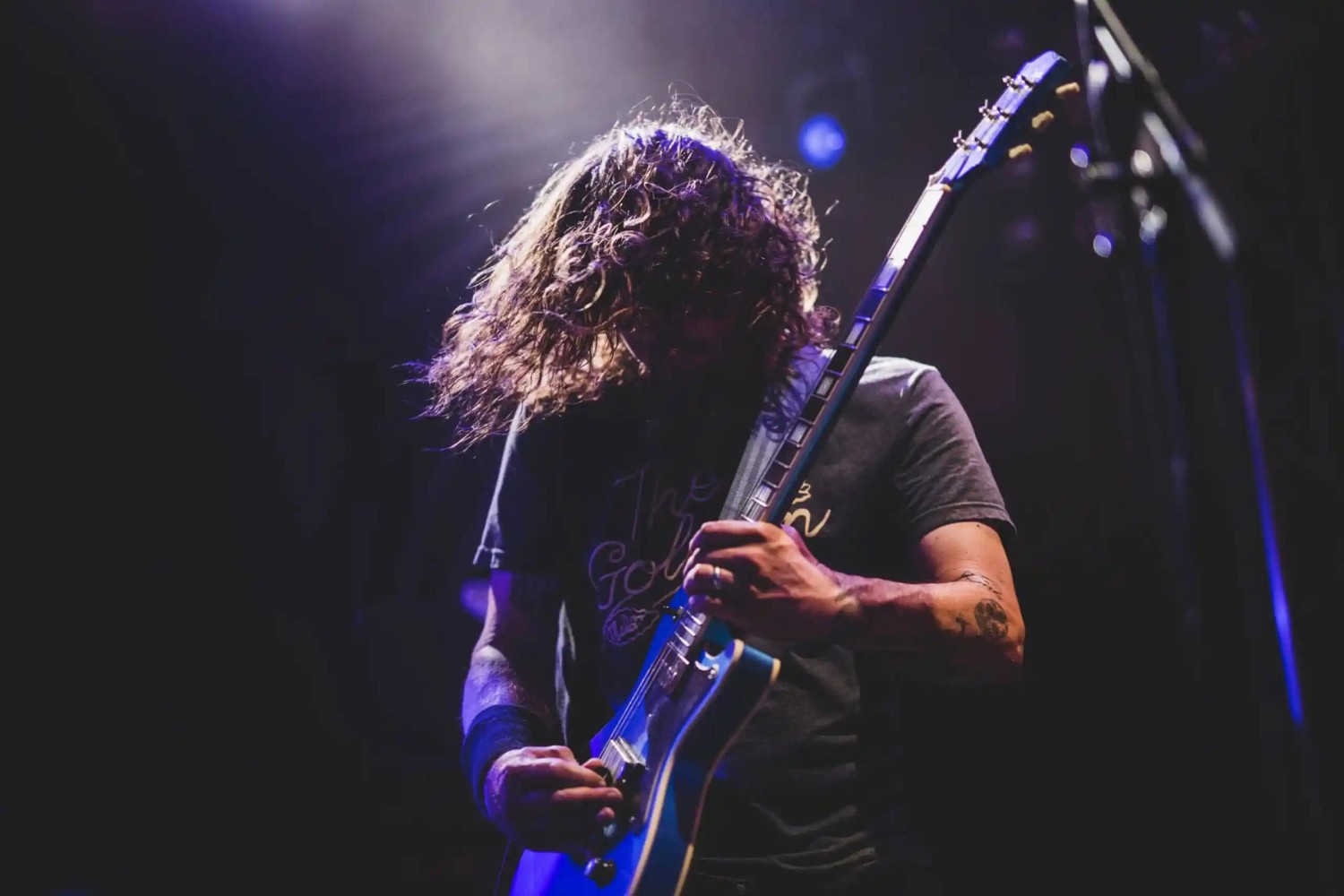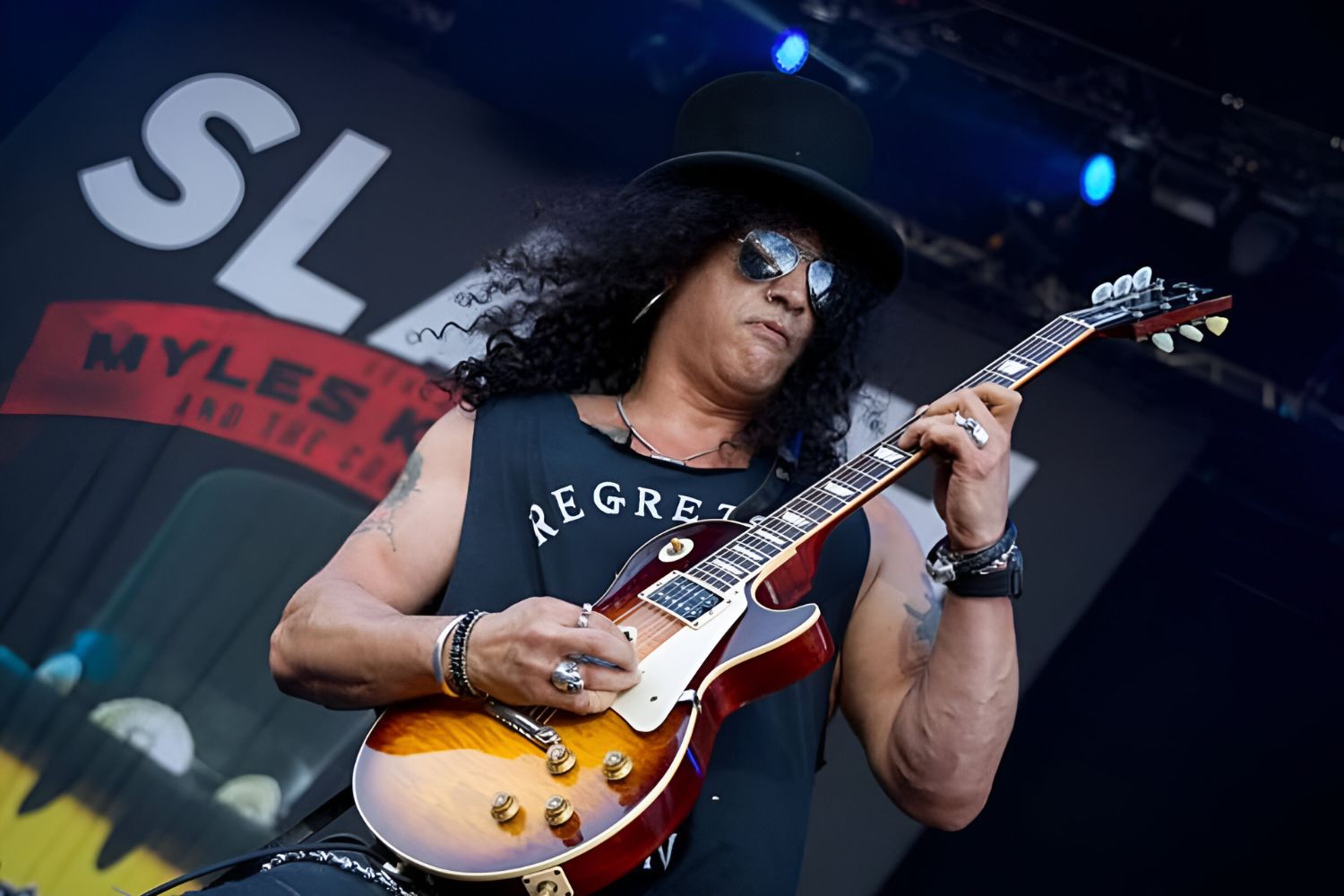Introduction
Eric Clapton, the legendary guitarist often referred to as “Slowhand,” has carved his name in the annals of music history. With a career spanning over five decades, he is hailed as one of the greatest guitarists of all time. Clapton’s distinctive sound, a blend of blues, rock, and soul, has captivated and inspired millions of fans worldwide.
One crucial element that contributes to Clapton’s remarkable sound is his choice of guitars. Known for his impeccable taste and discerning ear, Clapton has experimented with various acoustic and electric guitars throughout his career, each amplifying his unique playing style and musical expression.
In this article, we will delve into the world of Eric Clapton’s guitar choices, focusing primarily on his acoustic guitars. We will explore the different eras of his career, the signature models associated with his name, and the undeniable impact his guitars have had on his music.
From early acoustic performances to electric guitar-driven rock and blues anthems, Clapton’s guitar journey has been nothing short of astounding. So, let’s dive in and uncover the secrets behind the guitars that have shaped the sound and legacy of the one and only Eric Clapton.
Early Years: The Unplugged Era
In the early years of his career, Eric Clapton gained recognition as an exceptional blues guitarist and made a name for himself playing with influential bands like The Yardbirds, Cream, and Derek and the Dominos. During this time, Clapton’s guitar of choice for his acoustic performances was the Gibson J-45.
The “Unplugged” era of Clapton’s career, which arguably brought him more mainstream success, began in the 1990s. His iconic MTV Unplugged performance showcased his versatility and mastery of acoustic guitar playing. The standout guitar from this era was his Martin 000-28EC, an instrument that captured the hearts of both Clapton and his fans.
The Martin 000-28EC quickly became synonymous with Clapton’s signature sound. Crafted with a solid Sitka spruce top and East Indian rosewood back and sides, this guitar delivers a rich and balanced tone, perfect for Clapton’s blues-infused melodies. The “000” refers to the body size, which is slightly smaller than a dreadnought, making it comfortable for players of all sizes.
With its exquisite craftsmanship and attention to detail, the Martin 000-28EC became a symbol of Clapton’s artistry. It featured a modified V-shaped neck profile, providing a comfortable grip and allowing for smooth fingerstyle playing. The headstock was adorned with Eric Clapton’s signature to further emphasize the unique collaboration between the guitarist and the renowned guitar manufacturer.
Whether it was his unplugged rendition of “Layla” or his soulful performance of “Tears in Heaven,” Clapton’s use of the Martin 000-28EC added a depth and authenticity to his songs that resonated with audiences worldwide. Its warm and intimate sound perfectly complemented Clapton’s heartfelt lyrics and soulful vocals.
The success of Clapton’s Unplugged album and subsequent live performances not only brought the Martin 000-28EC into the limelight but also sparked a resurgence in acoustic music. Its influence on aspiring guitarists and its contribution to the acoustic revival of the 1990s cannot be overstated. The Martin 000-28EC continues to be a highly sought-after instrument by guitar enthusiasts and fans of Eric Clapton alike.
The Martin Era: Eric Clapton’s Love for Martin Guitars
While the Martin 000-28EC was a standout guitar during Clapton’s Unplugged era, it was only the beginning of his love affair with Martin guitars. Throughout his career, Clapton has shown a deep appreciation for the craftsmanship and tonal brilliance that Martin instruments offer.
One of the notable additions to Clapton’s guitar collection during this era was the Martin 000-42EC. Similar to the 000-28EC in terms of body size and tonal characteristics, the 000-42EC had a few upgrades. The “42” in its name denotes the lavish appointments the guitar receives, including a stunning abalone pearl inlay on the top, back, sides, and fingerboard.
Clapton’s fondness for Martin guitars continued to evolve, with him eventually collaborating with the manufacturer for signature models. The Martin 000-28ECB, with the “B” standing for “Brazilian Rosewood,” was one such collaboration. This limited edition model featured the same specifications as the 000-28EC but with the addition of a special Brazilian rosewood back and sides, which enhances the guitar’s resonance even further.
Another significant development was the release of the Martin OM-ECHF Eric Clapton Signature Model. “OM” stands for “Orchestra Model,” and this body style is slightly larger than the 000 series, providing a more prominent and fuller sound. This guitar incorporated Clapton’s personal modifications, including a wider neck and a unique neck-to-body joint design, increasing playability and sustain.
Clapton’s love for Martin guitars is rooted not only in their exceptional sound but also in the rich history and heritage they embody. Martin guitars have a timeless quality, and their legacy is deeply intertwined with the history of American music. This alignment with Clapton’s appreciation for blues and folk traditions makes Martin guitars a natural extension of his musical identity.
Eric Clapton’s exploration of Martin guitars throughout his career demonstrates his commitment to finding the perfect instrument to express his musical vision. The partnership between Clapton and Martin has resulted in beautiful guitars that reflect his unique style and contribute to his continued musical success.
As we transition from the Martin era to the next phase of Clapton’s guitar journey, we witness his desire to expand his sonic palette and explore new possibilities. This leads us into the realm of electric guitars and another iconic instrument closely associated with Eric Clapton, the “Blackie” Stratocaster.
The Signature Model: The Martin 000-28EC Eric Clapton Signature Model
Eric Clapton’s profound impact on the guitar industry led to a special collaboration with Martin to create his signature model, the Martin 000-28EC Eric Clapton Signature Model. This guitar is the result of Clapton’s meticulous attention to detail and his desire to create an instrument that embodies his unique playing style and tone.
The Martin 000-28EC Signature Model builds upon the success of the original 000-28EC but incorporates Clapton’s personal modifications. It features a solid Sitka spruce top paired with East Indian rosewood back and sides, providing a warm and balanced tone. The neck profile is slightly modified, offering a comfortable playing experience for Clapton’s intricate fingerstyle technique.
One distinctive feature of the signature model is the “V” neck shape, which replicates the neck profile of Clapton’s beloved vintage guitars. This unique shaping provides a comfortable grip and enhances playability, allowing guitarists to effortlessly navigate the fretboard.
The Martin 000-28EC Signature Model also features an Adirondack spruce bracing pattern. Adirondack spruce is known for its exceptional stiffness and responsiveness, resulting in a more dynamic and expressive tone. This bracing pattern enhances the guitar’s projection, making it ideal for both studio recording and live performances.
Visually, this model is striking yet understated. It boasts beautiful appointments, such as herringbone top inlay, a tortoiseshell pickguard, and a black ebony fingerboard with small snowflake inlays. The headstock features Clapton’s signature, further emphasizing the partnership between the guitar legend and Martin.
The Martin 000-28EC Signature Model’s outstanding craftsmanship and tonal excellence have made it sought after by guitarists around the world. Its ability to faithfully reproduce Clapton’s iconic sound allows musicians to channel their inner Clapton and explore new musical territories.
Clapton’s dedication to creating a signature model that captures his essence as a guitarist speaks to his commitment to the craft and his desire to inspire future generations of musicians. The Martin 000-28EC Eric Clapton Signature Model stands as a testament to the profound impact that Clapton has had on the guitar industry and his enduring legacy as an iconic musician.
The Gibson Era: Exploring Different Sounds
While Eric Clapton is widely known for his expertise on the acoustic guitar, he has also made a significant mark in the realm of electric guitars. During the Gibson era of his career, Clapton delved into different sounds and embraced the versatility of electric guitars, expanding his musical horizons.
One guitar that played a prominent role during this era was the Gibson ES-335. This semi-hollow body electric guitar offered a distinctive sound that bridged the gap between the warm tones of traditional hollow-body guitars and the punchy characteristics of solid-body guitars. Clapton’s use of the ES-335 can be heard on his iconic recordings, such as “Sunshine of Your Love” with Cream and “Badge” with Derek and the Dominos.
Clapton’s quest for new sounds also led him to explore the world of Les Paul guitars. The Gibson Les Paul Standard became one of his go-to instruments, delivering powerful and sustain-rich tones that perfectly complemented his fiery blues solos. Clapton’s use of the Les Paul can be heard on his legendary album “Layla and Other Assorted Love Songs,” showcasing his virtuosity and the guitar’s ability to create thick, meaty tones.
In addition to the ES-335 and Les Paul, Clapton’s Gibson era witnessed his collaboration with the iconic guitar brand to create signature models. The Gibson “Lucy” Les Paul, inspired by Clapton’s nickname for his famous 1957 Goldtop Les Paul, was born out of his desire for a guitar with a more mellow and warm tone. This limited edition instrument featured unique aging patterns and aging effects to replicate the vintage character of Clapton’s beloved original guitar.
Clapton also worked closely with Gibson to create the “Crossroads” model, a recreation of his beloved 1964 ES-335. This guitar pays homage to Clapton’s unparalleled guitar skills and his charitable efforts through his Crossroads Guitar Festival. It features a semi-hollow body design, ’57 Classic humbucking pickups, and a specially contoured neck profile to provide optimal playability for Clapton’s dynamic style.
The Gibson era showcased Clapton’s ability to adapt and explore different sounds. The diverse range of electric guitars he utilized allowed him to push the boundaries of his music, creating a legacy that resonates with guitarists and fans worldwide.
As Clapton’s career continues to evolve, so does his guitar collection. In the next section, we will explore Clapton’s favorite electric guitar and the instrument that has become synonymous with his name – the “Blackie” Stratocaster.
The “Blackie” Stratocaster: Eric Clapton’s Favorite Electric Guitar
When it comes to electric guitars, there is one instrument that is forever associated with Eric Clapton – the “Blackie” Stratocaster. This iconic guitar holds a special place in Clapton’s heart and has become synonymous with his name and his legendary blues-infused sound.
The story of “Blackie” begins in the late 1960s when Clapton was on a quest for a vintage Stratocaster. At the time, he acquired several old Stratocasters and combined the best parts from each to create his dream guitar. As a result, “Blackie” was born, featuring a black finish that gave it its distinctive name.
What makes “Blackie” so remarkable is not just its appearance but also its incredible tone. The combination of a well-worn maple neck, a select alder body, and three vintage single-coil pickups produces the unmistakable Clapton sound that fans have come to love. Its versatility allows Clapton to seamlessly transition from soulful blues to searing rock solos.
Clapton used “Blackie” extensively throughout his career, including his time with Derek and the Dominos and during his successful solo career. The guitar can be heard on various classic recordings, such as “Layla,” “Wonderful Tonight,” and “Cocaine.”
The popularity and influence of “Blackie” extended beyond Clapton’s personal use. In 2004, the original “Blackie” was sold at auction for an astounding $959,500, making it the most expensive guitar ever sold at the time. A testament to its significance in the world of music.
Clapton’s connection to “Blackie” goes beyond its monetary value. The guitar embodies the essence of his playing style and represents his dedication to authenticity and tone. Like a trusted companion, “Blackie” has been by Clapton’s side throughout his journey, a constant source of inspiration and expression.
While the original “Blackie” has a special place in history, Clapton also partnered with Fender to release the Eric Clapton Signature Stratocaster series. These guitars faithfully recreate the classic “Blackie” look and sound, allowing fans and musicians to capture the essence of Clapton’s iconic guitar without the astronomical price tag.
Even with the availability of signature models, the legacy of “Blackie” remains inseparable from Clapton’s musical identity. It continues to inspire generations of guitarists to chase their own sonic dreams and serves as a reminder of the profound impact that an instrument can have on an artist’s career.
In the next section, we will explore Clapton’s ever-evolving guitar collection as he continues his musical journey and seeks new avenues of creative expression.
The Journey Continues: Clapton’s Ever-Evolving Guitar Collection
Throughout his illustrious career, Eric Clapton’s guitar collection has continued to grow, reflecting his evolving musical tastes and desire for new sonic possibilities. Clapton’s journey as a guitarist has seen him explore an array of instruments beyond his beloved acoustics and electric classics.
One notable addition to Clapton’s collection is the Gibson Firebird. Known for its unique reverse body design and mini-humbucker pickups, the Firebird offers a distinctive tone that complements Clapton’s diverse repertoire. Whether playing blues, rock, or even experimenting with different genres, the Firebird has found its place in Clapton’s guitar arsenal.
Clapton has also embraced the world of custom-made guitars. One standout example is his collaboration with the renowned luthier C.F. Martin & Co to create the Eric Clapton “Crossroads” acoustic guitar. This exclusive model features exquisite craftsmanship, premium tonewoods, and intricate inlays, representing the pinnacle of Martin’s artistry and Clapton’s refined taste.
In recent years, Clapton’s guitar collection has expanded to include different variations of his beloved Stratocaster. From the Fender Custom Shop to vintage models, Clapton explores the nuances of each instrument, continuously searching for unique tones and playing experiences.
Clapton’s journey has also seen him explore the world of slide guitar. The resonator guitar, particularly the National Steel guitar, has become a key instrument in his collection. With its metallic twang and distinctive slide-infused sound, the resonator guitar adds a new dimension to Clapton’s musical expression.
In addition to his personal collection, Clapton has also demonstrated a passion for philanthropy through his guitar donations. He has generously contributed guitars to charitable auctions, raising funds for various causes close to his heart. This selfless act further emphasizes Clapton’s deep connection to his instruments and his desire to use them for the greater good.
As Clapton’s musical journey continues, his guitar collection evolves alongside his ever-changing artistic vision. Whether it’s an acoustic masterpiece, an iconic electric guitar, or an instrument that pushes the boundaries of sonic exploration, Clapton’s guitar choices embody his unwavering commitment to craftsmanship, authenticity, and the pursuit of great music.
Though the guitars may change, one thing remains constant – Eric Clapton’s undeniable talent and passion for creating timeless music. His guitar collection serves as a testament to his artistic evolution and the enduring impact he has made on the world of music.
Conclusion
Eric Clapton’s guitar collection is a testament to his extraordinary career and his unwavering passion for music. From his early acoustic performances to his electric guitar-driven hits, Clapton has constantly sought out instruments that allow him to express his unique style and create timeless music.
Throughout the years, Clapton’s choices in guitars have become legendary in their own right. From the Martin 000-28EC that defined his “Unplugged” era to the Gibson ES-335 and Les Paul that showcased his versatility, each instrument has contributed to his iconic sound.
Clapton’s signature models, such as the Martin 000-28EC Eric Clapton Signature Model and the Fender Stratocaster “Blackie,” have enabled musicians around the world to capture the essence of his playing and find inspiration in his music.
But Clapton’s guitar journey goes beyond his signature models. His ever-evolving collection reflects his artistic growth, as he continues to explore new sounds and push the boundaries of his music. From custom guitars to resonators and beyond, Clapton’s curiosity and desire for sonic exploration know no bounds.
Moreover, Clapton’s dedication to charitable causes and his generous donations of guitars demonstrate the significant impact that these instruments have had on his life. They are not just objects of admiration but tools for creating change and making a positive impact on the lives of others.
As we look back at the guitars that have shaped Eric Clapton’s incredible career, it becomes clear that his connection to these instruments goes far beyond their physical attributes. They are extensions of his soul, conveying emotions and stories through each note and chord.
Eric Clapton’s guitar collection is a testament to his artistry, creativity, and boundless dedication to his craft. It is a reminder of the power of music and the profound impact that a well-crafted instrument can have on a musician’s journey.
Whether he’s strumming the strings of an acoustic guitar or unleashing fiery solos on an electric, Eric Clapton’s legacy as a guitar virtuoso is etched in the history of music. His guitars, each with its own story and unique voice, will forever hold a special place in the hearts of musicians and fans worldwide.







